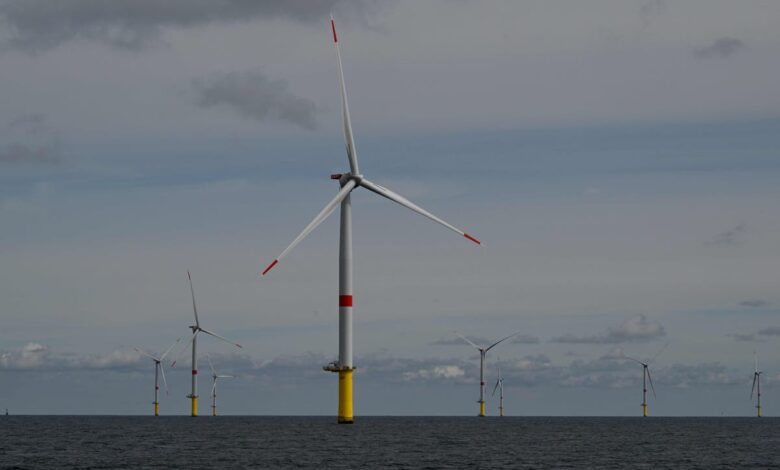‘Windfall tax’ on wind and solar companies set to be unveiled next week

A de-facto windfall tax will be imposed on wind and solar companies reaping sky-high profits from high energy prices, under plans set to be unveiled next week.
Ministers have run out of patience with renewable electricity generators, having sought to persuade them to accept voluntary 15-year fixed-price contracts well below current wholesale rates.
Now legislation is expected as early as next week to cap revenues that have soared as prices rose following Russia’s invasion of Ukraine.
It is expected to be similar to the European Union’s proposals – effectively amounting to a windfall tax on companies including EDF Energy, RWE, Scottish Power and SSE.
But the firms are pushing back against the move, protesting that they have already sold most of the energy produced this year and that a tax risks another disruption of the financial markets.
They are believed to be willing to accept a tax on profits, but reject a cap on revenues that could not be offset against future investment – a perk enjoyed, controversially, by oil and gas companies.
The government, however, sees the advantage in capping prices, in order to bring down inflation further, when £500bn of government debt is linked to the rate of price increases.
A price of £50-£60 per megawatt-hour (MWh) was discussed before talks collapsed, The Financial Times reported, well below current prices of about £490/MWh, although no final decisions have been taken.
One industry insider briefed on the talks criticised the plan, telling the paper: “You’re disincentivising technologies you can build quickly to lower [energy] bills.”
Electricity generators fear the “tax” will be more damaging to the sector than a 25 per cent windfall levy imposed on oil and gas companies in May by then-chancellor Rishi Sunak.
Controversially, it was accompanied by a new investment allowance that can be used to offset the tax bills from projects to increase production of fossil fuels – despite the UK’s net-zero commitment.
In June, the industry body Energy UK warned that the next decade would be “critical in ensuring sufficient investment to reach both our climate change and domestic energy security targets”.
“Generation is a long-term industry, with investment horizons that span decades and a windfall tax on generators could delay and raise the cost of these investments – at the very time that we need to increase spending to meet the government’s own aims,” said deputy director Adam Berman
“We need to make investment in cheap, clean, domestic generation easier – not harder – and with electricity demand set to double by 2035, a windfall tax would jeopardise our pathway to energy security, net zero, and reliable low-cost electricity.”
The Department for Business, Energy and Industrial Strategy declined to comment on the plans being considered.
Last month, the government announced that UK households’ energy bills would be capped at an average of £2,500 per annum for the next two years – at a cost of £60bn for just six months.





